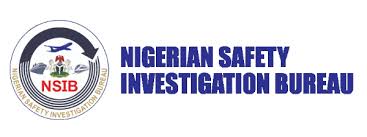Fresh details have emerged following an incident involving an Air Peace aircraft that skidded off the runway at Port Harcourt International Airport, with the Nigerian Safety Investigation Bureau (NSIB) confirming that both the pilot and co-pilot tested positive for alcohol. This startling revelation has sparked renewed concerns over safety protocols and crew conduct within the nation’s aviation industry.
According to the preliminary findings released by the NSIB, the runway incident, which occurred during a routine domestic flight, was not merely a case of weather interference or mechanical failure as initially speculated. Instead, toxicology reports confirmed that the flight crew had alcohol in their system at the time of the incident — a clear violation of global and local aviation safety standards. The incident, which caused significant alarm among passengers and disrupted airport operations, thankfully did not result in casualties, but left many shaken and raised red flags across the aviation sector.
Officials from the NSIB, Nigeria’s apex body responsible for investigating transport accidents, disclosed that the incident involved a Boeing 737 operated by Air Peace, Nigeria’s leading commercial airline. The aircraft reportedly veered off the runway shortly after touchdown, prompting an emergency response. While no major injuries were reported, the event triggered a thorough investigation, during which the flight crew underwent routine post-incident testing.
The confirmation that both the captain and first officer were under the influence of alcohol has prompted public outcry and demands for stricter oversight by the Nigerian Civil Aviation Authority (NCAA). Industry watchers have also called on airline operators to intensify internal monitoring and compliance checks to prevent similar lapses that could endanger lives.
Air Peace, in its initial statement, had attributed the runway excursion to wet conditions and poor visibility, but has yet to issue a formal response following the NSIB’s toxicology disclosures. However, aviation analysts note that crew impairment—particularly due to alcohol—can significantly compromise flight safety, affecting decision-making, reaction time, and overall cockpit coordination.
This development has prompted the NSIB to stress the urgent need for Nigerian airlines to adopt stricter pre-flight screening policies and adhere to international safety procedures. It also reopens the conversation about enforcing mandatory rest periods, mental wellness checks, and regular substance abuse tests for flight personnel across all airlines operating within Nigerian airspace.
As the investigation continues, stakeholders await possible sanctions or regulatory actions from the NCAA, which could include licence suspension, retraining mandates, or more stringent flight crew assessments. Meanwhile, the travelling public is being reassured that aviation in Nigeria remains one of the most regulated sectors, with safety as a paramount concern.
The NSIB maintains that its full investigative report will be made public upon conclusion, but has reiterated that the current findings underscore a critical lapse in professionalism and duty of care that must be urgently addressed to maintain public trust and uphold the integrity of Nigeria’s aviation industry.

